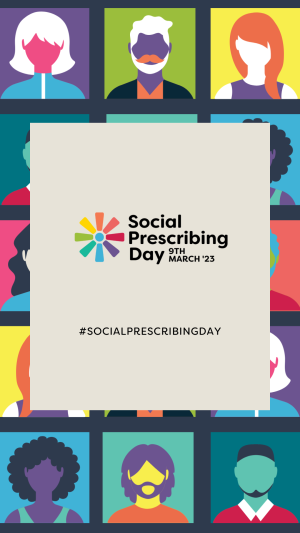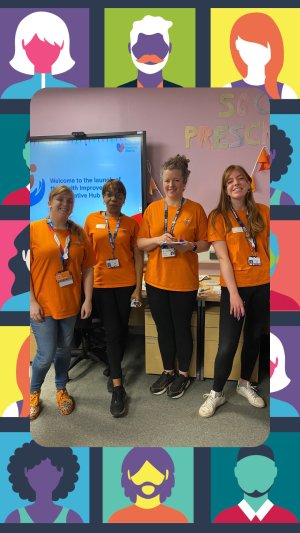

A day in the life of a Social Prescriber...
"Hello. My name is Vicki, I am the social prescriber for children and young people aged 11-25 presenting to the Emergency Department of QMC. I am employed by RedThread.
- How diverse is your day?
Everyday is different in this job and the fast-paced and challenging nature of the role is part of why I enjoy it. Young people presenting to the emergency department are experiencing a crisis and they are often more willing to open up about their lives and engage with services at this time. There is no set criteria for a referral to social prescribing and so within one day, I can support a young adult who is at risk of homelessness, a child who has been bullied at school and a family who are struggling with food insecurity.
- How long you’d spend doing an assessment, getting to know the person, creating a plan etc?
I try not to put a time limit on patients and give them a safespace to talk and process their emotions. I would say an average conversation with a patient takes between 20 to 30 minutes. Having discussed the referral with the allocated clinician, I introduce myself and the service to the patient, gain their consent to work with them and check that they feel well enough to have a conversation. I explore the reason for their presentation to hospital and social factors around this. The areas I always discuss as part of my assessment are housing, family and friendships, employment/education, activities, alcohol and drugs, intimate relationships, self-harm/suicidality and whether they have any existing support in place already. However, I try to build these into our conversation to avoid the interaction feeling like an interrogation. We then work together to formulate a plan which addresses any areas they have raised as impacting them at that time. I then go away to complete the referrals, write up my notes and send the patient a summary of what we have discussed, any resources and referrals and their next steps.
- Which other agencies are involved in the work do?
This role requires us to build and maintain relationships with lots of organisations, both statutory and voluntary! Within the hospital we work closely with the other teams in the health improvement collaborative. Outside of hospital, we work with mental health services, social care housing, schools/colleges, food banks and a large range of voluntary organisations.
- What are you most proud of about your role?
I am really proud of how hard we have worked to establish the service in the emergency department and it is great to see how often clinicians are referring patients to the social prescribing service as part of their care. Within my role in particular, I think I offer people a great deal of support during the transition to adulthood. Many of the young people I work with are just over 18 and because they are considered 'adults' they are expected to navigate the scary world of the emergency department and follow up services on their own. This can be very overwhelming and can leave them very vulnerable. As the social prescriber I am able to offer emotional support during a difficult time and help them to find their way to the people who can help going forward.
- What do you enjoy most about your role?
I enjoy talking to people in the Emergency Department and hearing their stories. We are in a privileged position to be able to support young people during times of crisis. The work is really varied and fast paced, I feel like I learn something new every day."